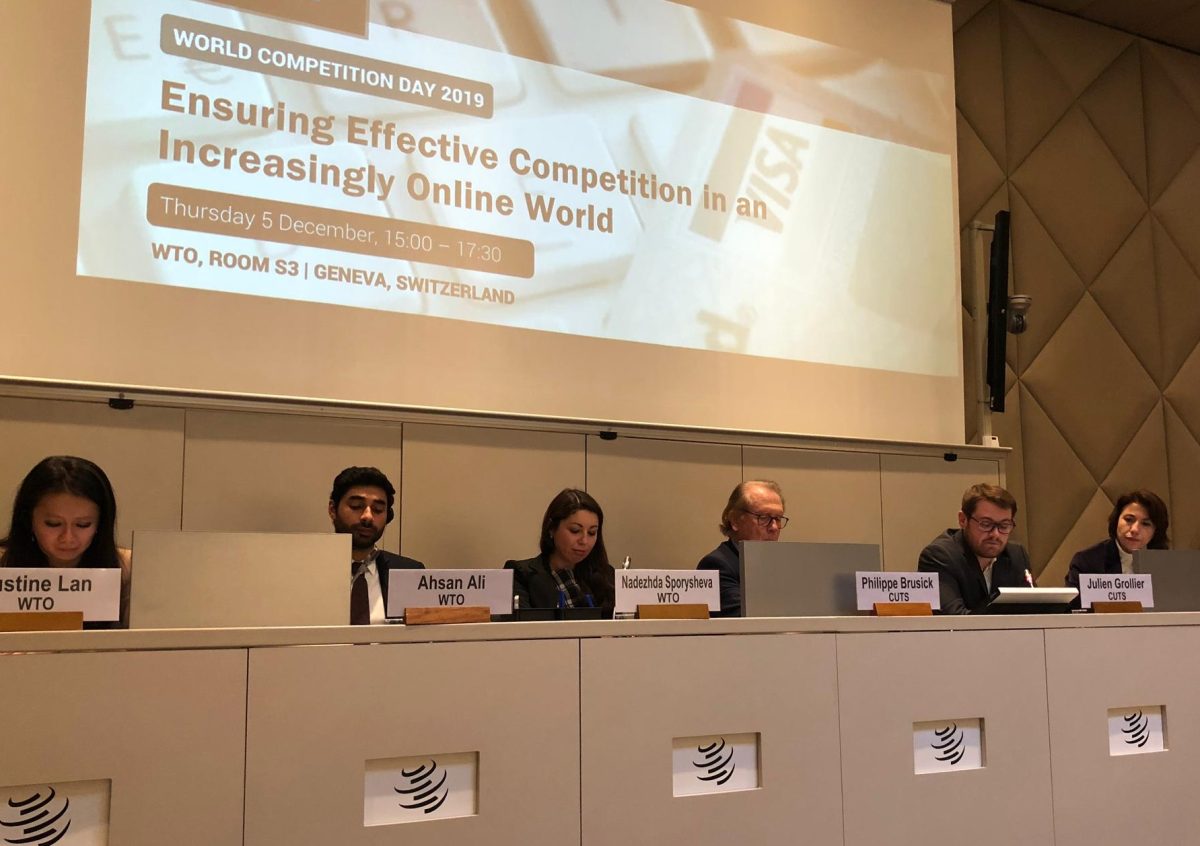Gathered in the Ugandan capital city until today, high-level officials, experts and agro-entrepreneurs from all corners of East Africa considered policy options for making agro-processing in the region more climate-aware, trade-driven and food security enhancing. The regional meeting, jointly organised by CUTS International and SEATINI, helped identify necessary policy actions to be pursued over the next three years under the regional project “Promoting Agriculture, Climate and Trade Linkages in the East African Community – Phase 2” (PACT EAC2).
KAMPALA. Gathered in the Ugandan capital city until today, high-level officials, experts and agro-entrepreneurs from all corners of East Africa considered policy options for making agro-processing in the region more climate-aware, trade-driven and food security enhancing. The regional meeting, jointly organised by CUTS International and SEATINI, helped identify necessary policy actions to be pursued over the next three years under the regional project “Promoting Agriculture, Climate and Trade Linkages in the East African Community – Phase 2” (PACT EAC2).
“We meet today to learn how the PACT EAC2 project can help to achieve positive climate-food security- trade linkages in agro-processing sectors, and how to best leverage current trade and climate negotiations at the multilateral level,” said yesterday Hon. Werikhe Kafabusa, the Ugandan Minister of State for Trade.
According to him, “Climate change and its detrimental impacts are an undeniable reality we face in the EAC, affecting productivity and trade competitiveness across many sectors.” He was joined by Hon. Jesca Eriyo, Deputy Secretary-General for Productive and Social Sectors of the East African Community, who emphasised the need for creating capacities in agro-processing to create jobs, add value to East African products, and reduce post-harvest losses. Indeed, the Private Sector Foundation Uganda estimates that almost 65% of agricultural production is lost post-harvest.
“I am happy that CUTS and its partners have decided to take up my suggestion to address such policy coherence issues in the Agro-processing sectors,” she said.
The still infant agro-processing industry in East Africa has been earmarked as having huge potential for poverty reduction, growth and regional integration. The region’s success in realising this potential will partly depend on its ability to factor in the ever-increasing challenges posed by climate change, and work in synergy with its own trade agenda. “We all agree that climate change is real, and that agro-processing is the way forward. These issues are intertwined,” said Hon. Fred Mbidde Mukasa, Chair of East African Legislative Assembly’s Committee on Communication, Trade and Investment.
Under spotlight were some key promising sectors such as horticulture, fruits, palm oil, roots, tubers and bananas. Experts shared emerging policy research lessons on how these sectors – and agro-processing more generally – can become more climate-aware, trade-driven and food security enhancing. For instance, Ms. Elisabath Tamale, currently undertaking a research study on the matter for the PACT EAC2 project in Uganda, pointed to some climate change adaptation strategies for agro-processing such as adopting new technology and plant varieties. Adaptive production techniques such as terracing, use of manure, drainage, water channels, and soil management through mulching were also highlighted.
In an ideal scenario, trade policies should ensure the availability of inputs despite climate change, markets for the processed products and access to cleaner technologies; while climate change policies support this effort through targeted adaptation and mitigation initiatives. It was emphasised that the role of international trade and climate negotiations in framing the policy space for such policies should not be overlooked.
“Following last years’ Paris Climate Conference, East African agro-processing could benefit from enhanced international finance for tackling climate change,” said climate negotiator Michael Okumu of Kenya. In particular, he noted that “from 2020, at least USD100 Billion per year should be available under the Green Climate Fund.”
In a session moderated by the Head of UNCTAD’s Regional Office for Africa, Dr. Joy Kategekwa, East African negotiators to the World Trade Organisation (WTO) in Geneva reflected about the potential implications of last year’s Nairobi agreement and the outlook for multilateral trade talks. Besides foreseeing a potential intent to discipline domestic agricultural subsidies at the next ministerial conference, trade negotiators also stressed the need to start implementing some of the advances already secured for East African countries.
In his closing remarks today, H.E. Christopher Onyanga Aparr, Ambassador of Uganda to the UN and other IGOs in Geneva, recalled that “Besides the recent WTO Nairobi conference, other major recent conferences such as COP21 and the UN Agenda 2030 have embraced the subject matter we have discussed in this meeting.”
The project “Promoting Agriculture, Climate and Trade linkages in the EAC – phase 2” (PACT EAC2) builds capacities of East Africans for climate-aware, trade-driven and food securityenhancing agro-processing in their region. Until 2019, the project brings together, informs, trains and moves to advocacy action hundreds of stakeholders from the government, businesses, civil society, media, academia and farming communities. The project is supported by the Swedish International Development Cooperation Agency (Sida), represented at the event by Ms. Fantu Farris who appreciated “the modesty of CUTS’ approach, which puts stakeholders at the centre as agents of change.”









